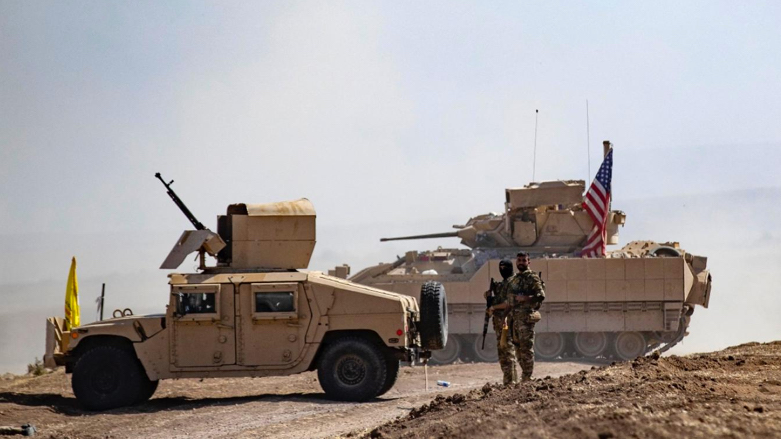SDF is ‘Critical Counterterrorism Partner,’ U.S. Says

WASHINGTON DC, United States (Kurdistan 24) – State Department Spokesperson Matthew Miller, addressing journalists on Tuesday, reaffirmed the continuing U.S. partnership with the Kurdish-led Syrian Democratic Forces (SDF) in their common fight against ISIS in Syria.
Miller was asked about Turkey and its opposition to the SDF, and whether Turkey had sought to undercut U.S. support for the SDF in exchange for the abrupt change in its attitude toward Sweden joining NATO.
That change occurred in the nick of time—the day before the July 11-12 NATO summit in Lithuania. And Miller’s answer, in short, was no. “We believe the SDF have been a critical counterterrorism partner, and they remain a critical counterterrorism partner,” he said.
Miller described the SDF as “essential in preventing ISIS from realizing its aspirations for a reconstitution,” and he said that it had “fought bravely to liberate vast stretches of Syria from ISIS control.”
“As I said, Miller concluded, “they will continue to be a partner of ours.”
Background to Turkish Position
As late as Friday, as Ukrainian President, Volodymyr Zelensky, visited Istanbul, his Turkish counterpart, Recep Tayyip Erdogan, affirmed his continued opposition to Sweden’s bid for NATO membership.
On Monday, Erdogan even upped the ante, telling journalists that Turkey’s long-standing request to join the European Union, should be granted, before Turkey would agree to Sweden’s request to join NATO.
“First, pave the way for Turkey in the European Union and then let us pave the way for Sweden, just as we paved the way for Finland,” Erdogan said, just before leaving for Lithuania.
Later that day—the day before the NATO summit—Erdogan saw Swedish Prime Minister Ulf Kristersson in the Lithuanian capital in a meeting hosted by NATO Secretary General Jens Stoltenberg. In their meeting, as Stoltenberg announced afterwards, Erdogan agreed to accept Sweden’s membership in NATO.
Read More: President Erdogan approves forwarding of Sweden's NATO accession protocol to the Turkish parliament
Thus, the summit could proceed on the assumption that Sweden would soon be joining the defense organization, as the West mobilized to confront Russia’s unprovoked aggression against Ukraine.
Subsequently, many analysts concluded that Erdogan’s aim, all along, had been to bargain as hard as possible for what he could get in exchange for Turkey’s agreement to Sweden’s NATO membership.
So, on Tuesday, with the issue apparently resolved, U.S. President Joe Biden met with Erdogan on the sidelines of the NATO summit. Biden thanked Erdogan for his “diplomacy” and “courage” in agreeing to Sweden’s NATO membership.
Among the most important items that Ankara sought for that agreement were more F-16 fighter jets, along with modernization kits for the F-16s already in the Turkish Air Force.
Thus, also on Tuesday, National Security Council Advisor Jake Sullivan announced that the administration, in consultation with Congress, was moving ahead with the sale to Turkey of the F-16s and the modernization kits.
Erdogan had got what he wanted—and even more, perhaps, including renewed recognition of Turkey’s role in international politics.
